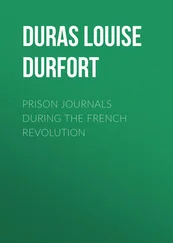Томас Карлейль - The French Revolution - A History
Здесь есть возможность читать онлайн «Томас Карлейль - The French Revolution - A History» — ознакомительный отрывок электронной книги совершенно бесплатно, а после прочтения отрывка купить полную версию. В некоторых случаях можно слушать аудио, скачать через торрент в формате fb2 и присутствует краткое содержание. Жанр: foreign_prose, История, foreign_edu, foreign_antique, на английском языке. Описание произведения, (предисловие) а так же отзывы посетителей доступны на портале библиотеки ЛибКат.
- Название:The French Revolution: A History
- Автор:
- Жанр:
- Год:неизвестен
- ISBN:нет данных
- Рейтинг книги:4 / 5. Голосов: 1
-
Избранное:Добавить в избранное
- Отзывы:
-
Ваша оценка:
- 80
- 1
- 2
- 3
- 4
- 5
The French Revolution: A History: краткое содержание, описание и аннотация
Предлагаем к чтению аннотацию, описание, краткое содержание или предисловие (зависит от того, что написал сам автор книги «The French Revolution: A History»). Если вы не нашли необходимую информацию о книге — напишите в комментариях, мы постараемся отыскать её.
The French Revolution: A History — читать онлайн ознакомительный отрывок
Ниже представлен текст книги, разбитый по страницам. Система сохранения места последней прочитанной страницы, позволяет с удобством читать онлайн бесплатно книгу «The French Revolution: A History», без необходимости каждый раз заново искать на чём Вы остановились. Поставьте закладку, и сможете в любой момент перейти на страницу, на которой закончили чтение.
Интервал:
Закладка:
For the rest, the proper authorities felt that no Funeral could be too unceremonious. Besenval himself thinks it was unceremonious enough. Two carriages containing two noblemen of the usher species, and a Versailles clerical person; some score of mounted pages, some fifty palfreniers; these, with torches, but not so much as in black, start from Versailles on the second evening with their leaden bier. At a high trot they start; and keep up that pace. For the jibes ( brocards ) of those Parisians, who stand planted in two rows, all the way to St. Denis, and 'give vent to their pleasantry, the characteristic of the nation,' do not tempt one to slacken. Towards midnight the vaults of St. Denis receive their own; unwept by any eye of all these; if not by poor Loque his neglected Daughter's, whose Nunnery is hard by.
Him they crush down, and huddle under-ground, in this impatient way; him and his era of sin and tyranny and shame; for behold a New Era is come; the future all the brighter that the past was base.
BOOK 1.II
THE PAPER AGE
Chapter 1.2.I
Astraea Redux
A paradoxical philosopher, carrying to the uttermost length that aphorism of Montesquieu's, 'Happy the people whose annals are tiresome,' has said, 'Happy the people whose annals are vacant.' In which saying, mad as it looks, may there not still be found some grain of reason? For truly, as it has been written, 'Silence is divine,' and of Heaven; so in all earthly things too there is a silence which is better than any speech. Consider it well, the Event, the thing which can be spoken of and recorded, is it not, in all cases, some disruption, some solution of continuity? Were it even a glad Event, it involves change, involves loss ( of active Force ); and so far, either in the past or in the present, is an irregularity, a disease. Stillest perseverance were our blessedness; not dislocation and alteration,—could they be avoided.
The oak grows silently, in the forest, a thousand years; only in the thousandth year, when the woodman arrives with his axe, is there heard an echoing through the solitudes; and the oak announces itself when, with a far-sounding crash, it falls. How silent too was the planting of the acorn; scattered from the lap of some wandering wind! Nay, when our oak flowered, or put on its leaves ( its glad Events ), what shout of proclamation could there be? Hardly from the most observant a word of recognition. These things befell not, they were slowly done; not in an hour, but through the flight of days: what was to be said of it? This hour seemed altogether as the last was, as the next would be.
It is thus everywhere that foolish Rumour babbles not of what was done, but of what was misdone or undone; and foolish History ( ever, more or less, the written epitomised synopsis of Rumour ) knows so little that were not as well unknown. Attila Invasions, Walter-the-Penniless Crusades, Sicilian Vespers, Thirty-Years Wars: mere sin and misery; not work, but hindrance of work! For the Earth, all this while, was yearly green and yellow with her kind harvests; the hand of the craftsman, the mind of the thinker rested not: and so, after all, and in spite of all, we have this so glorious high-domed blossoming World; concerning which, poor History may well ask, with wonder, Whence it came? She knows so little of it, knows so much of what obstructed it, what would have rendered it impossible. Such, nevertheless, by necessity or foolish choice, is her rule and practice; whereby that paradox, 'Happy the people whose annals are vacant,' is not without its true side.
And yet, what seems more pertinent to note here, there is a stillness, not of unobstructed growth, but of passive inertness, and symptom of imminent downfall. As victory is silent, so is defeat. Of the opposing forces the weaker has resigned itself; the stronger marches on, noiseless now, but rapid, inevitable: the fall and overturn will not be noiseless. How all grows, and has its period, even as the herbs of the fields, be it annual, centennial, millennial! All grows and dies, each by its own wondrous laws, in wondrous fashion of its own; spiritual things most wondrously of all. Inscrutable, to the wisest, are these latter; not to be prophesied of, or understood. If when the oak stands proudliest flourishing to the eye, you know that its heart is sound, it is not so with the man; how much less with the Society, with the Nation of men! Of such it may be affirmed even that the superficial aspect, that the inward feeling of full health, is generally ominous. For indeed it is of apoplexy, so to speak, and a plethoric lazy habit of body, that Churches, Kingships, Social Institutions, oftenest die. Sad, when such Institution plethorically says to itself, Take thy ease, thou hast goods laid up;—like the fool of the Gospel, to whom it was answered, Fool, this night thy life shall be required of thee!
Is it the healthy peace, or the ominous unhealthy, that rests on France, for these next Ten Years? Over which the Historian can pass lightly, without call to linger: for as yet events are not, much less performances. Time of sunniest stillness;—shall we call it, what all men thought it, the new Age of God? Call it at least, of Paper; which in many ways is the succedaneum of Gold. Bank-paper, wherewith you can still buy when there is no gold left; Book-paper, splendent with Theories, Philosophies, Sensibilities,—beautiful art, not only of revealing Thought, but also of so beautifully hiding from us the want of Thought! Paper is made from the rags of things that did once exist; there are endless excellences in Paper.—What wisest Philosophe, in this halcyon uneventful period, could prophesy that there was approaching, big with darkness and confusion, the event of events? Hope ushers in a Revolution,—as earthquakes are preceded by bright weather. On the Fifth of May, fifteen years hence, old Louis will not be sending for the Sacraments; but a new Louis, his grandson, with the whole pomp of astonished intoxicated France, will be opening the States-General.
Dubarrydom and its D'Aiguillons are gone forever. There is a young, still docile, well-intentioned King; a young, beautiful and bountiful, well-intentioned Queen; and with them all France, as it were, become young. Maupeou and his Parlement have to vanish into thick night; respectable Magistrates, not indifferent to the Nation, were it only for having been opponents of the Court, can descend unchained from their 'steep rocks at Croe in Combrailles' and elsewhere, and return singing praises: the old Parlement of Paris resumes its functions. Instead of a profligate bankrupt Abbe Terray, we have now, for Controller-General, a virtuous philosophic Turgot, with a whole Reformed France in his head. By whom whatsoever is wrong, in Finance or otherwise, will be righted,—as far as possible. Is it not as if Wisdom herself were henceforth to have seat and voice in the Council of Kings? Turgot has taken office with the noblest plainness of speech to that effect; been listened to with the noblest royal trustfulness. ( Turgot's Letter: Condorcet, Vie de Turgot ( Oeuvres de Condorcet, t. v. ), p. 67. The date is 24th August, 1774. ) It is true, as King Louis objects, "They say he never goes to mass;" but liberal France likes him little worse for that; liberal France answers, "The Abbe Terray always went." Philosophism sees, for the first time, a Philosophe ( or even a Philosopher ) in office: she in all things will applausively second him; neither will light old Maurepas obstruct, if he can easily help it.
Then how 'sweet' are the manners; vice 'losing all its deformity;' becoming decent ( as established things, making regulations for themselves, do ); becoming almost a kind of 'sweet' virtue! Intelligence so abounds; irradiated by wit and the art of conversation. Philosophism sits joyful in her glittering saloons, the dinner-guest of Opulence grown ingenuous, the very nobles proud to sit by her; and preaches, lifted up over all Bastilles, a coming millennium. From far Ferney, Patriarch Voltaire gives sign: veterans Diderot, D'Alembert have lived to see this day; these with their younger Marmontels, Morellets, Chamforts, Raynals, make glad the spicy board of rich ministering Dowager, of philosophic Farmer-General. O nights and suppers of the gods! Of a truth, the long-demonstrated will now be done: 'the Age of Revolutions approaches' ( as Jean Jacques wrote ), but then of happy blessed ones. Man awakens from his long somnambulism; chases the Phantasms that beleagured and bewitched him. Behold the new morning glittering down the eastern steeps; fly, false Phantasms, from its shafts of light; let the Absurd fly utterly forsaking this lower Earth for ever. It is Truth and Astraea Redux that ( in the shape of Philosophism ) henceforth reign. For what imaginable purpose was man made, if not to be 'happy'? By victorious Analysis, and Progress of the Species, happiness enough now awaits him. Kings can become philosophers; or else philosophers Kings. Let but Society be once rightly constituted,—by victorious Analysis. The stomach that is empty shall be filled; the throat that is dry shall be wetted with wine. Labour itself shall be all one as rest; not grievous, but joyous. Wheatfields, one would think, cannot come to grow untilled; no man made clayey, or made weary thereby;—unless indeed machinery will do it? Gratuitous Tailors and Restaurateurs may start up, at fit intervals, one as yet sees not how. But if each will, according to rule of Benevolence, have a care for all, then surely—no one will be uncared for. Nay, who knows but, by sufficiently victorious Analysis, 'human life may be indefinitely lengthened,' and men get rid of Death, as they have already done of the Devil? We shall then be happy in spite of Death and the Devil.—So preaches magniloquent Philosophism her Redeunt Saturnia regna.
Читать дальшеИнтервал:
Закладка:
Похожие книги на «The French Revolution: A History»
Представляем Вашему вниманию похожие книги на «The French Revolution: A History» списком для выбора. Мы отобрали схожую по названию и смыслу литературу в надежде предоставить читателям больше вариантов отыскать новые, интересные, ещё непрочитанные произведения.
Обсуждение, отзывы о книге «The French Revolution: A History» и просто собственные мнения читателей. Оставьте ваши комментарии, напишите, что Вы думаете о произведении, его смысле или главных героях. Укажите что конкретно понравилось, а что нет, и почему Вы так считаете.












